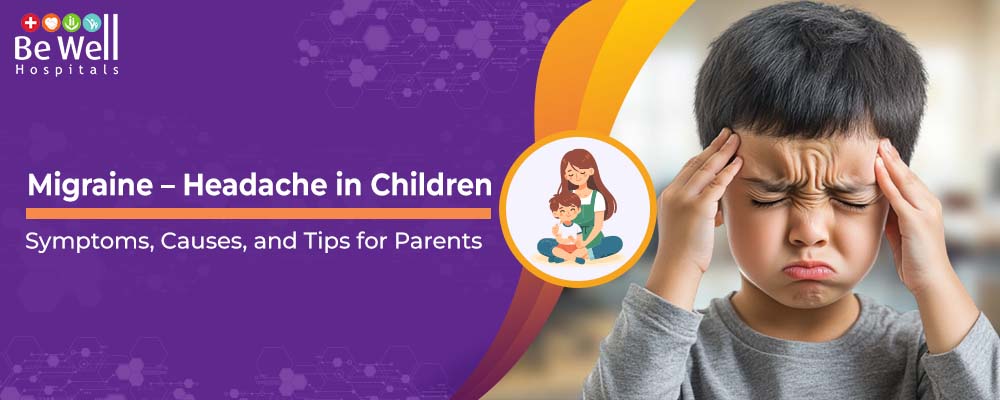Migraine – Headache in Children: Symptoms, Causes, and Tips for Parents

When we hear the word "migraine," we often imagine an adult grappling with intense headaches and light sensitivity. But the truth is, migraines aren't just a grown-up problem—they can and do affect children too. Unfortunately, because children may struggle to articulate their symptoms or are often dismissed as having "just a headache," many pediatric migraines go undiagnosed or misdiagnosed. These painful episodes can disrupt a child's school performance, sleep, mood, and overall quality of life. Recognizing the signs early and offering the right support can make a world of difference. In this blog, we’ll uncover the reality of childhood migraines, debunk myths, and explore how timely intervention can help young ones lead happier, healthier lives.
Migraines in children are more than just bad headaches—they are a complex neurological condition that can significantly affect a child’s well-being. Understanding migraines in children is the first step toward effective support and management. Unlike the typical image of adult migraines, which often involve intense, one-sided head pain lasting for hours, migraines in children can look quite different. For starters, they tend to have shorter duration—often lasting less than two hours—and the pain is frequently bilateral, meaning it occurs on both sides of the head. This can make it harder to identify as a migraine at first glance. Moreover, associated symptoms such as nausea, vomiting, and sensitivity to light and sound are common, but children may also experience abdominal pain, dizziness, and mood changes. Because children may not always be able to clearly express their symptoms or understand what’s happening to them, migraines can be mistakenly attributed to stress, vision problems, or behavioral issues. This makes early awareness and understanding of childhood migraines essential for parents, caregivers, and teachers. By recognizing the unique characteristics of pediatric migraines, we can ensure timely diagnosis and better support systems, helping children live more comfortably and confidently.
Recognizing the symptoms of certain health conditions—like migraines or neurological issues—in children can be challenging, especially when they’re too young to articulate exactly what they’re feeling. Here’s a detailed breakdown of common symptoms to watch for in children:
Young children might not be able to fully explain what they’re feeling. Instead, they may become unusually quiet, clingy, restless, or cry more than usual. Non-verbal cues like covering the head, closing the eyes frequently, or avoiding play could all be signs of discomfort.
When your child often complains of headaches, it’s natural to be worried. Visiting a pediatrician or neurologist ensures accurate diagnosis and effective treatment.
Most childhood headaches are treatable, but timely diagnosis is essential. Consulting a specialist ensures your child gets the right care and relief. Don’t wait—seek expert help if you're concerned.
Supporting a child who experiences frequent headaches or migraines can be challenging, but small steps can make a big difference. Here are some practical tips to help your child manage and cope better:
With the right approach and support, your child can learn to manage headaches confidently and comfortably.
Migraine in children, though distressing, is highly manageable with the right care, timely medical attention, and a supportive environment. As a parent or caregiver, your awareness and involvement play a crucial role in identifying symptoms early, understanding triggers, and ensuring your child receives the proper diagnosis and treatment. Equally important is offering emotional reassurance, helping your child feel safe, heard, and supported throughout their journey. With consistent care, lifestyle adjustments, and expert medical guidance, children with migraines can go on to lead active, fulfilling, and headache-free lives.
Don’t ignore recurring symptoms—taking action early can make all the difference. To consult with experienced paediatric neurologists and get the right care for your child, visit our Neurology Centre or call 9698 300 300 today.
